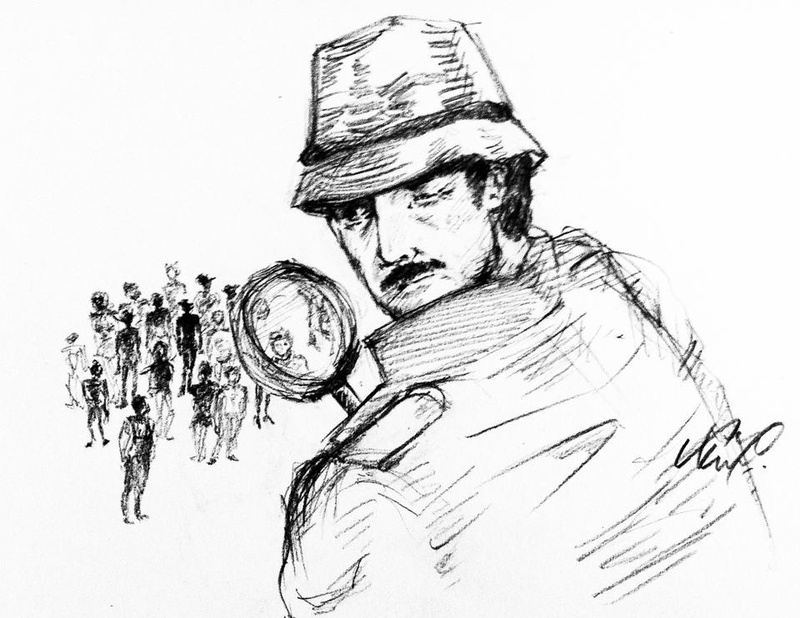Like so many other popular phrases of politically incorrect origin, the word ‘gyp,’ meaning to cheat or swindle, originated from a suspicion of Gypsy, or Romani, populations. For centuries, governments who disdained their unorthodox ways forced the traditionally nomadic group to assimilate. Yet, just as public opinion has historically lead to a distrust of Gypsies, a recent crop of works about the lives of modern Gypsies—from the Katona József Theatre’s production of “Gypsies” at the Kennedy Center in Washington, D.C. last week, to the autobiography “Gypsy Boy” by Mikey Walsh, to the reality TV program “My Big Fat Gypsy Wedding”—all portray Gypsies as a population equally likely to distrust “gorjios,” or outsider non-Gypsies.
In Scottish writer Stef Penney’s latest novel “The Invisible Ones,” Leon Wood, a Gypsy, wants to investigate his daughter Rose’s disappearance but will only place his trust in a fellow Gypsy. Enter Ray Lovell, a half-Romani private investigator who assimilated years ago into “gorjio” society. He soon sets off to figure out exactly how and why Rose disappeared. Seven years before the story picks up, Rose got married to the dark and handsome Ivo Janko in an arranged marriage. Their first son, Christo, inherited the family disease—presumably hemophilia—and shortly thereafter Rose vanished. In order to solve this mystery, Ray must investigate not only the facts of her disappearance but also her entire family. The novel maintains a unique focus on the sinister and enchanting life of a Romani family struggling to maintain its traditional way of life in the face of an encroaching world, yet unfortunately, it inches away from this compelling premise towards an overly prolonged resolution.
Penney alternates perspectives between Ray and James “JJ” Janko, Rose’s inquisitive 14-year-old nephew. The novel, set in England in the 1980s, opens with Ray lying in a hospital bed, paralyzed and unable to remember the events that led to his crippling accident. The story gets off to a slow start after this clichéd opening scene, and the narrative tends to drag as Penney sets up the two closely related mysteries of Rose’s disappearance and Ray’s hospitalization. She floats in and out of the private lives of Ray and JJ, but does not pick up the pace until the last third of the novel. Though the diversions give a sensitive glimpse into this family’s life, the main mysteries are solved abruptly in clever yet far-fetched gestures, which ultimately depletes their gratification. Penney proves, however, remarkably adept at sincerely capturing the Romani way of life. JJ’s great-uncle and Rose’s father-in-law, Tene Janko, poetically describes his mindset one night to Ray: “Can you imagine Tene Janko in a house? Little brick box in a row of brick boxes? It would be putting me in my coffin. It would be my death… ‘Assimilation,’ they call it. Annihilation, more like.” Statements like this perfectly encapsulate the romanticized image of the Gypsy mentality, yet Penney manages to pull them off with noteworthy truth and relatability.
The most heartfelt aspect of the novel occurs in the life of JJ, who not only struggles to fit in at school but also must search for his absent father and care for his sick family members. He recounts with embarrassment the one time he ever brought a girl from school back to his trailer: She was shocked by the lack of privacy and even more shocked by the single outdoor bathroom. “We’re like trains on tracks that run more or less parallel but will never meet,” he says, commenting on their apparent similarities yet fundamental differences. “I can’t go on her tracks, and she can’t go on mine.” Penney’s talent as a writer is apparent in the integrity of JJ’s voice; his lively and rebellious young perspective is eminently more compelling than Ray’s depressing life.
While fascinating, instants like these take up far too much space for the sparsely scattered hints and red herrings they contain, especially in a novel that is so clearly posited as a mystery story. There are moments when Penney’s writing itself seems to be stalling the plot. For example, as Ray stands on a swampy former campsite known as Black Patch—potentially the site of Rose’s disappearance—he thinks, “Whatever happened to Rose, I have to find out. Whatever hidden current took her, it must be under the surface still. ‘Are you Rose?’ I say softly but out loud. If you are here, tell me. Give me a sign.” Moments like this fail to add substantive mystery to Penney’s story. The hackneyed image of a detective speaking aloud to the missing person hardly seems necessary. It is already apparent that Ray is desperately seeking answers at this juncture, and this aside is distracting and clunky.
But perhaps it is narrow-minded to dismiss Penney’s slow pacing as a flaw; it might have been a calculated move on her part to distinguish this novel from other detective fiction. A case that involves gypsies is unlike any other. The usual reservoirs of information—national and civic records, the testimonies of neighbors and acquaintances—simply do not exist in the investigation of a population constantly under the radar and on the move. If Penney set out to mimic her main characters’ frustration in order to distinguish this novel from others in its genre, she has indeed succeeded.
Intriguing though this idea is, for the novel to ultimately succeed, the overdrawn frustrations and tensions would have to resolve themselves with a conclusion so memorable as to make the wait worthwhile. While the ending is an admittedly interesting twist, it appears as a mere flourish at the end of an exhausting investigation and its taxing diversions. There is a lot that is worthwhile in this novel; with better pacing it would be engaging and enjoyable, and with half the length, it could have triumphed.
Read more in Arts
Ceramics Studio Exercises Its License to Kiln













